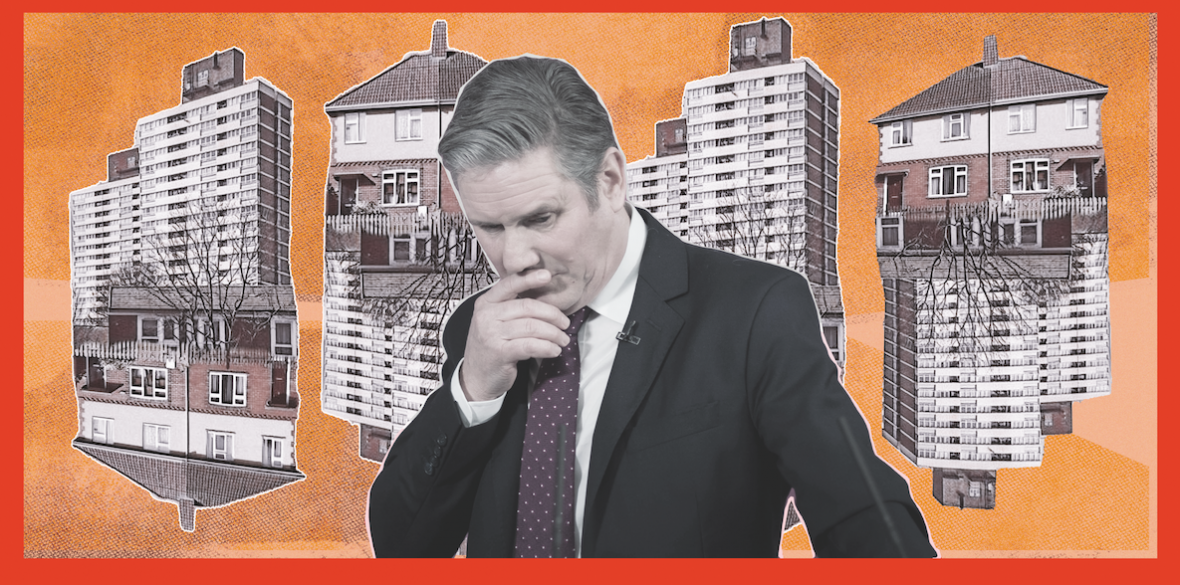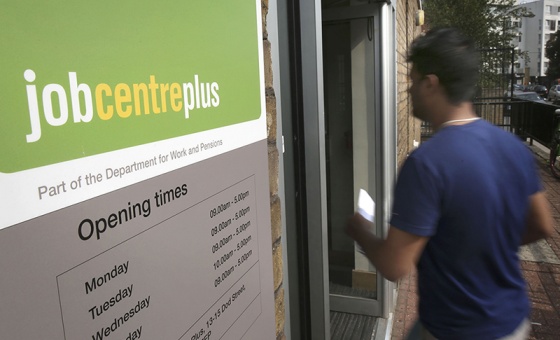This is the last article you can read this month
You can read more article this month
You can read more articles this month
Sorry your limit is up for this month
Reset on:
Please help support the Morning Star by subscribing here
KEIR STARMER has pledged to “bulldoze” opposition to his target for the next Labour government to build 1.5 million homes in its first five years in power.
He says it will also create five post-1945-style new towns. Angela Raynor has talked about the importance of social housing in her life and her intention to reform private renting, including abolishing “no-fault” evictions.
At least the Labour Party has finally recognised the political importance of housing. The problem is we’ve heard most of it before: tried and failed policies that don’t go to the root of the problem and could make a bad situation worse.
The most worrying feature of Starmer’s speech is his declaration that he is a “Yimby,” meaning he would, in theory, saying “yes in my backyard” [to new housing development] — as opposed to a “Nimby,” who would say “not in my back yard.”
This is not just a question of name-calling. The Yimby v Nimby conflict has been festering on social media for some time. It isn’t new either, but assumes more significance when it’s taken up by, potentially, the next prime minister.
The focus of the dichotomy is the planning system. For decades, libertarian Tories (and some anarchists!) have argued that the best way to meet housing needs is to allow new homes to be built with the minimum of interference. This “no plan” agenda has rarely got much traction, but that could be changing.
Starting in the US, but spreading to Britain, Yimbyism has been actively promoted by the property development industry and its lobbyists. Their argument is that only by dramatically accelerating new development, can we hope to provide the “affordable” homes that are so desperately needed. Rhetorically, this combines “a rising tide raises all ships,” with “trickle down economics” — two deeply flawed concepts when applied to housing policy.
We now have decades of evidence that shows allowing private developers, including corporate housing associations, to lead housing delivery doesn’t work. But as homelessness has soared, so have the profits of the big house builders — reaching £7 billion in the last two years.
The idea that “just build more” will reduce housing need doesn’t stand up. In my borough, Tower Hamlets, more new homes have been built in the last decade or so than anywhere in Europe, but the number of people on the housing register hasn’t come down. In all our cities, we see new towers of “luxury apartments” that are an insult to people who know they’ll never be able to afford them.
In 2007, prime minister Gordon Brown pledged to build three million new homes by 2020. In fact, the figure was 2,164,270, although he wasn’t around for some of that. But sadly, since 1997, housing policy hasn’t changed much, whichever party is in power.
Just playing the numbers game, while continuing to pander to developers, is folly. With 1.6 million households on the waiting list for a social rented home — and probably as many again who don’t bother to register because they have no hope of getting one — what matters most is what kind of homes are built, not just how many.
Even if Starmer delivered 1.5 million new homes, if they continue the trend of being unaffordable to rent or buy, for most people in housing need, then it’s another policy failure waiting to happen.
The same could be true of the “new” new towns. Every government for the last 30 years has said it would do this, or something similar. Tony Blair inherited a Tory idea to develop the so-called Thames Gateway. Brown promoted “eco towns,” and David Cameron and George Osborne fantasised about “garden cities.”
None of them succeeded, for two main reasons. First, they were dependent on private developers, who have a commercial interest in maintaining housing scarcity, including by hoarding land. Second, the successful post-war new towns were founded on something that Starmer and co don’t believe in: council housing.
Understandably, some have also raised environmental concerns about Starmer’s plans, particularly in relation to another key feature of post-45 new towns, the Green Belt. The critical question is democratic control.
Allowing profit-driven developers to build what, where and how they like, in the pursuit of government targets, will repeat the mistakes of the past and increase the climate-changing impact of new development.
Underlying Starmer’s Yimby charter is an ideological fixation with home ownership. At a time of high interest rates and growing volatility in the global housing market, this is perverse.
However, it equates with Labour’s apparent refusal to scrap the Right to Buy, despite widespread opposition to the totemic Thatcherite policy.
But this illustrates the main purpose of Starmer’s plan, which is to distract growing demands for direct investment in council housing. Around the country, local authorities are spending £2.6bn — and rising — on temporary accommodation, desperately trying to meet the crisis caused by four decades of neoliberal housing policies.
In the immortal words of Herbert Marcuse: “There isn’t a housing crisis because the system isn’t working. There’s a housing crisis because that’s how the system works.” Nothing in Labour’s emerging housing policy suggests the kind of radical change of direction needed to avoid even more housing misery, with all the damaging social consequences it brings.










